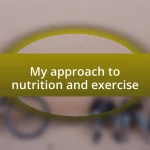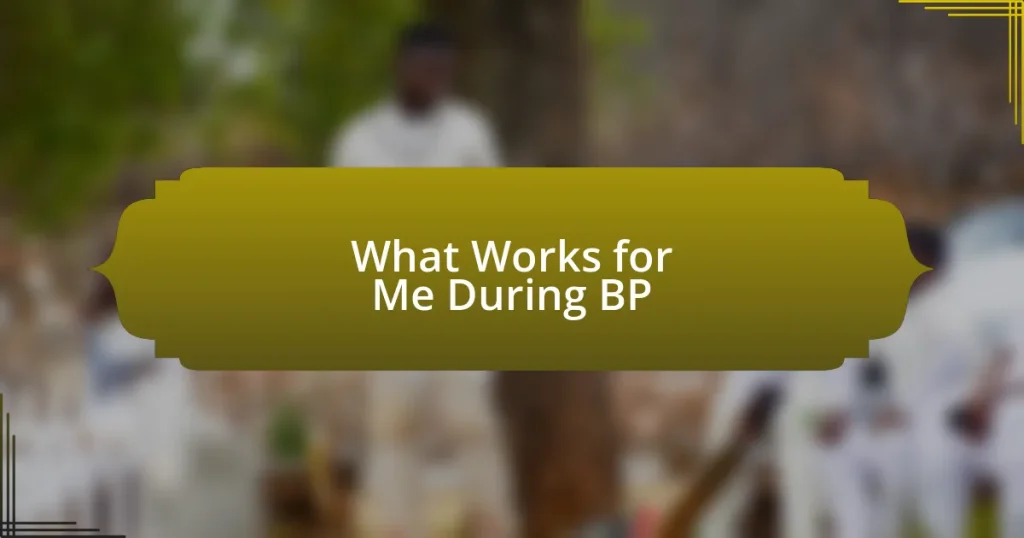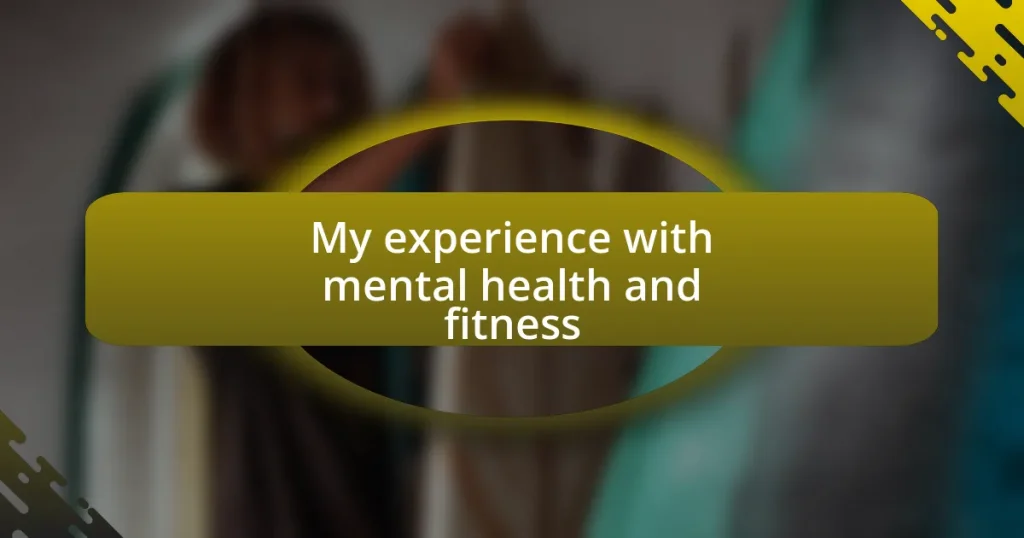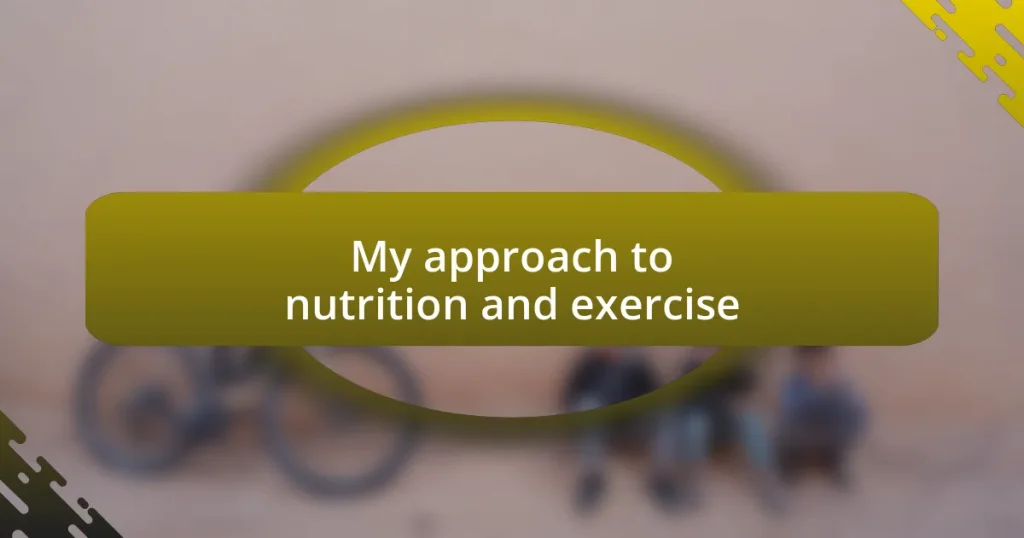Key takeaways:
- Understanding blood pressure, including systolic and diastolic measurements, is crucial for health management.
- Regular monitoring can lead to early detection of issues and motivate positive lifestyle changes.
- Medication adherence is vital for managing blood pressure and can be supported through reminders and communication with healthcare providers.
- Sharing blood pressure readings fosters accountability and creates supportive health-focused discussions within social groups.

Understanding Blood Pressure Basics
Blood pressure measures the force of blood against your artery walls as your heart pumps. Understanding this concept is crucial because it directly impacts your health; high blood pressure, for instance, can lead to serious conditions like heart disease. Have you ever considered how daily stressors might play a role in this?
There are two readings associated with blood pressure: systolic and diastolic. Systolic pressure occurs when the heart beats, while diastolic pressure happens when it’s at rest. I remember the first time I learned to check my own blood pressure; the fluctuations surprised me! It made me reflect on how my lifestyle choices were reflected in those numbers.
Monitoring blood pressure is essential for everyone, not just those diagnosed with hypertension. I’ve found that sharing my readings with loved ones prompts enlightening conversations about health habits and choices. Isn’t it interesting how something as simple as a number can open doors for discussions about well-being?
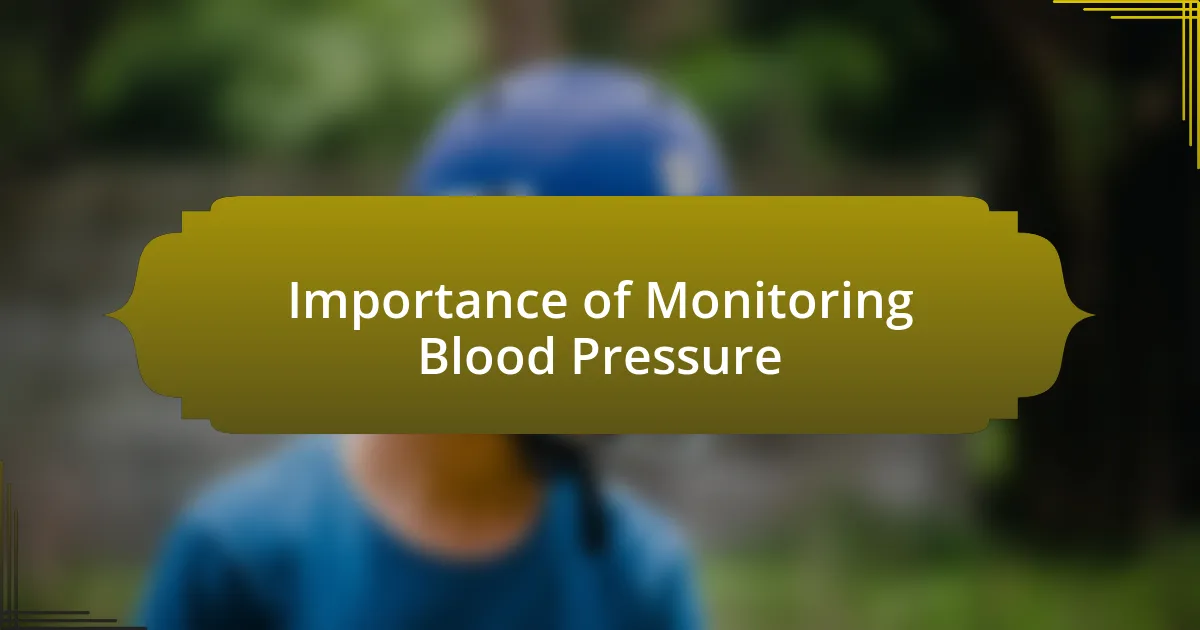
Importance of Monitoring Blood Pressure
Monitoring blood pressure is vital because it offers valuable insights into overall cardiovascular health. Personally, I remember the first time I took my readings consistently; it turned into a small ritual that gave me a sense of control over my health. Tracking these numbers has not only made me more aware of my body’s signals but has also motivated me to make positive lifestyle changes.
Regularly checking blood pressure can also help detect potential issues early on. When I noticed a slight increase in my readings one week, I decided to change my diet and incorporate more exercise. Seeing a gradual improvement in those numbers reinforced my commitment to making healthier choices, which felt incredibly rewarding.
Additionally, monitoring blood pressure fosters accountability, both personally and socially. By sharing my journey with friends, I found a supportive group that held each other accountable for our health goals. It’s fascinating how these simple numbers can lead to deeper conversations and strong bonds with those around us.
| Benefits of Monitoring | Personal Experiences |
|---|---|
| Provides early detection of health issues | Noticed changes before they became serious |
| Encourages proactive health management | Adopted healthier habits upon seeing trends |
| Fosters community and support | Connected with friends around health goals |
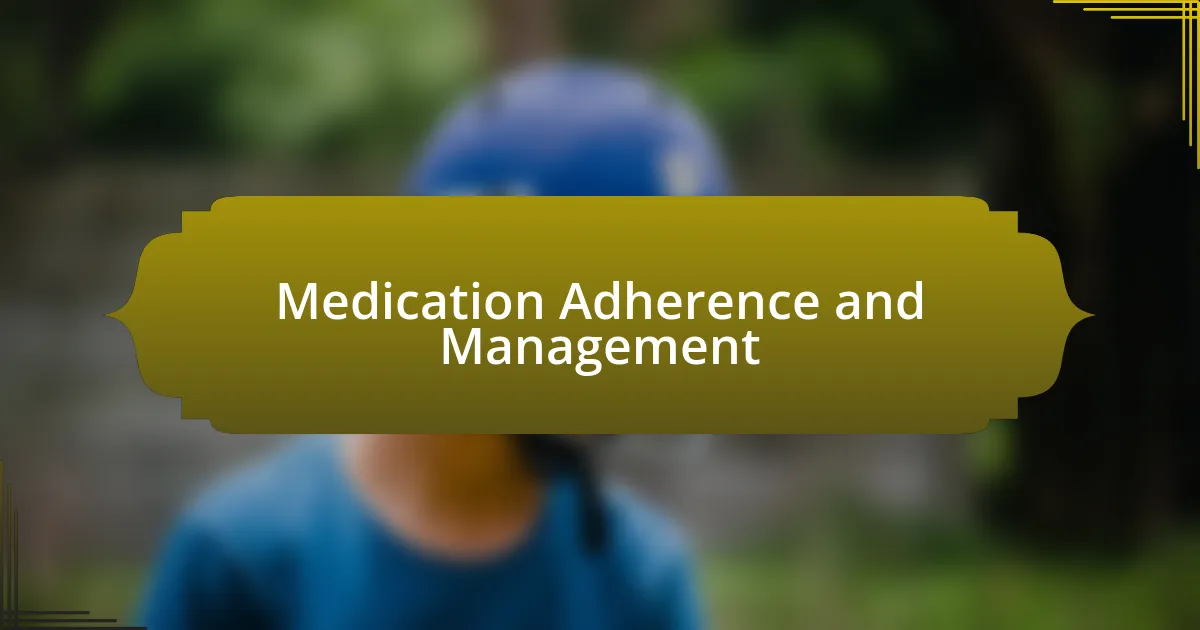
Medication Adherence and Management
I’ve found that sticking to a medication routine can be surprisingly challenging, yet it’s absolutely crucial for managing blood pressure effectively. There were days when I simply forgot to take my meds, leading to anxiety about my blood pressure levels. It made me realize how important it is to build reminders into my daily life, whether through alarms or a pill organizer, to keep me on track.
What’s interesting is how my understanding of medication management evolved. At first, I viewed my pills as a burden, but over time, I began to see them as tools for empowerment. For example, when I consistently took my medication, I noticed significant improvements in my readings. That realization inspired me to view my adherence as an active choice toward a healthier life.
Over time, I also learned the importance of communicating with my healthcare provider about my medications. Each time I shared my experiences, including side effects or concerns, I felt more involved in my care. It’s fascinating how that dialogue not only clarified my treatment plan but also deepened my understanding of why these medications matter. Have you had similar experiences in communicating with your healthcare team?


